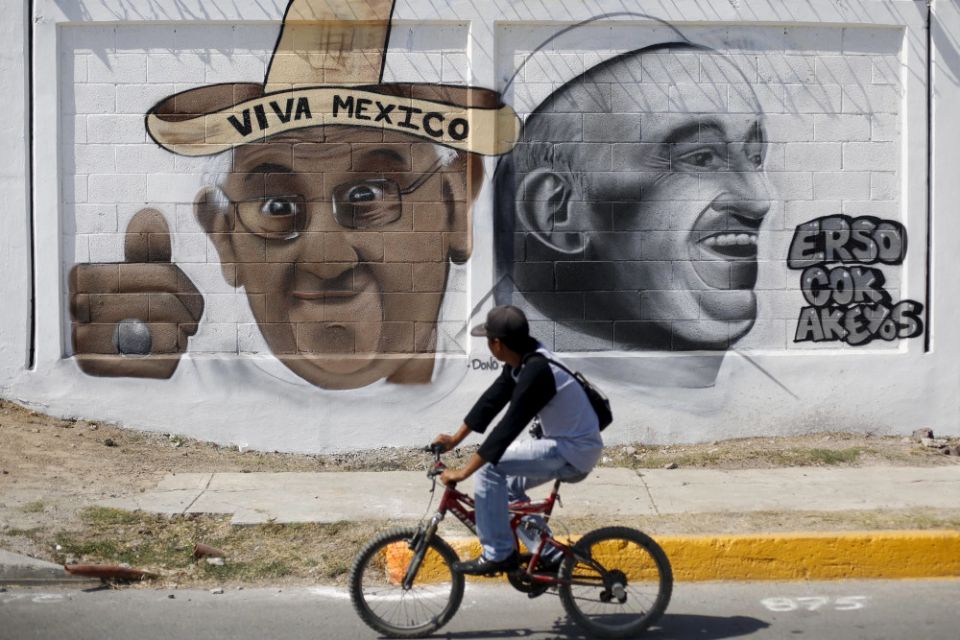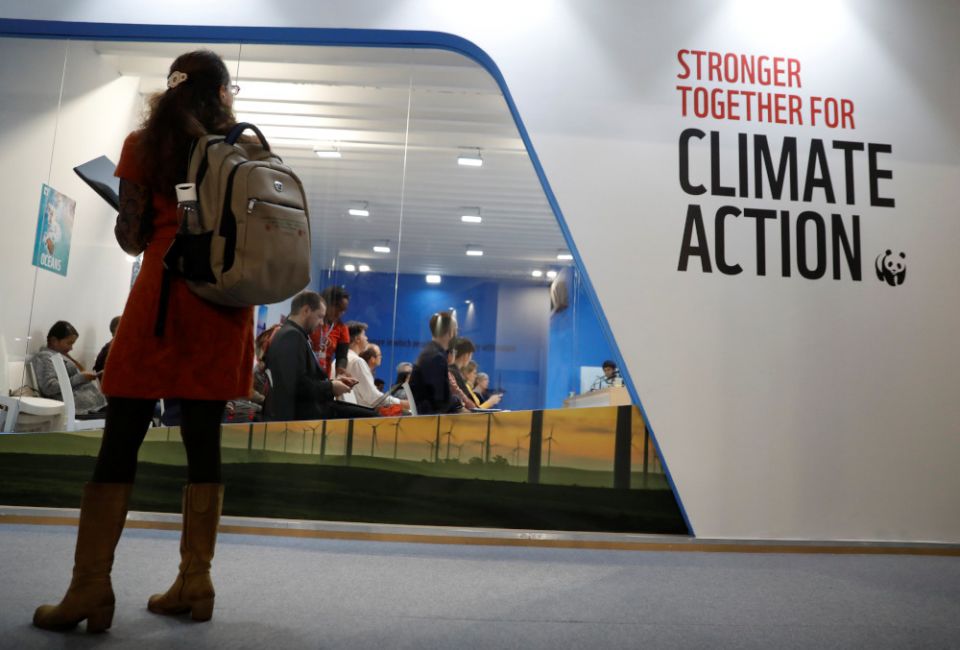20160205T1044-1971-CNS-POPE-MEXICO-CATHEDRAL.jpg

Another Ash Wednesday has come and gone, which means we are now officially into Lent and it's time to get down to business. That's right. I'm talking prayer, I'm talking fasting and I am most certainly talking almsgiving. (Cue airhorn.)
This week's question asks, "What and where do I start to help save our planet?"
I'll get to what and where in just a second, but first let me tell you when the best time to start is. Now!
Lent is as good an opportunity as ever for us to begin building those eco-friendly habits we've been meaning to get a jump on. Deciding what exact changes to make is up to you. Consider your lifestyle, how you can make the most impact and what is feasible for you and your family.
So here are a few simple ways to get you started on your Lenten journey:
Prayer?
-
Check out EarthBeat's Lenten Daily Food Reflections.
-
These daily reflections are quick and easy – most take less than a minute to get through. They push us to look at our relationship to the earth and the food we eat, prompting us to consider how we can be both better stewards and servants.
- Want to kick off each day with a reflection? Sign-up here to get them delivered straight to your inbox every morning throughout Lent.
-
Fasting?
-
Drive less.
-
Commit to cutting out short rides. Instead, when possible try walking, biking or taking public transportation for trips shorter than two miles. Or one mile. Or even a half mile – that small step can be an important one towards further action. And if not driving isn't an option for you, consider carpooling when possible!
-
Why? Cars rely on gas which, when burned, releases carbon dioxide into the atmosphere, contributing to climate change. The U.S. transportation sector is the largest source of carbon emissions in the country, and passenger cars (including light trucks and S.U.V.s) contribute half of those emissions. If everyone in the United States drove just 10 percent less, it would be like shutting down about 28 coal-fired power plants for a year.
- Need more incentive? Check out these five healthy benefits of walking, courtesy of Harvard.
-
20181210T1329-22809-CNS-COP24-CATHOLIC-DELEGATES.jpg

-
Eat less meat (and dairy).
-
For the next 40 days, stop eating beef. If you want to take it to the next level, cut all meat and dairy products out of your diet.
-
Why? Some scientists say that avoiding meat and dairy products might be the biggest way to reduce your environmental impact. Beef and lamb have particularly large carbon footprints. Developed land for agriculture is also a major contributor to the current mass wildlife extinction, so you'll be helping save lives too!
-
Need help getting started? The Sisters of Mercy made this easy guide for prayerfully eating less meat during Lent 2020, a project that my colleague, Brian Roewe, reports on here.
-
-
-
Stop wasting food.
-
That's right. Fast from food waste and finish what's on your plate. Also, try planning ahead so as to not overcook. If you do end up with leftovers, try composting. You can read about that in this Small Earth Story.
-
Why? All food requires greenhouse gases to produce it. So much so that if food waste were a country, it would be the third highest emitter in the world, behind the United States and China.
-
Pro tip: Join the Ignatian Solidarity Network in a Lenten food waste fast.
-
-
Almsgiving?
The U.S. Conference of Catholic Bishops defines "almsgiving," as "donating money or goods to the poor and performing other acts of charity." A little worried that donating to fight climate change isn't a worthy Lenten act of charity? Well keep in mind that climate change will have its strongest effects on poor and marginalized communities.
If you're interested in using your money to help the environment, go ahead and check out these organizations:
-
Coalition for Rainforest Nations
-
The Coalition is an intergovernmental organization that champions a reducing emissions mechanism that ensures developing countries are paid for preventing deforestation.
-
What's the impact? A 12 cent donation can avert an estimated one metric ton of carbon dioxide. A $100 donation can avert 857 metric tons of carbon dioxide. (For comparison, the average American's carbon footprint is roughly 16 metric tons per year.)
-
You can donate here.
-
-
-
-
BURN builds and distributes fuel efficient stoves in Kenya, and its mission is to provide clean cooking solutions to all of sub-Saharan Africa.
-
What's the impact? According to its website, a $40 donation "will allow a low-income family in Kenya to finance" a clean cookstove and save 50 cents everyday. The Giving Green initiative at IDinsight, a data analytics organization aimed at fighting poverty, listed BURN as the only carbon offset opportunity they could recommend with confidence, meaning you'll be sure to reduce your carbon footprint as well.
-
You can donate here.
-
-
-
-
This nonprofit focuses on protecting waterways along the New York and New Jersey coasts through a combination of advocacy, volunteer cleanups and monitoring water quality. Considering the damage climate change is inflicting on our oceans, donating to causes like this can be very worthwhile.
-
What's the impact? 84 cents of every dollar donated goes towards aiding water quality.
-
You can donate here.
-
-
One last thing…
It's important to remember that while lifestyle changes are crucial steps toward addressing climate change, big systemic solutions are needed even more. Check out this Climate Action Guide from Audubon to see how your "climate story" might contribute to broader change. Maybe you'll find a couple other ideas you can incorporate into your Lenten journey.
Oh, and don't forget to vote! I'll leave it up to you which Lenten practice voting fits into.
[Jesse Remedios is an NCR staff writer. His email address is jremedios@ncronline.org. Follow him on Twitter at @JCRemedios.]
Advertisement
Advertisement


